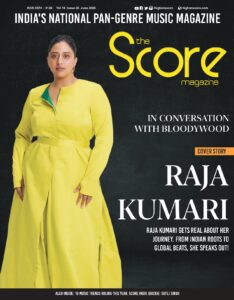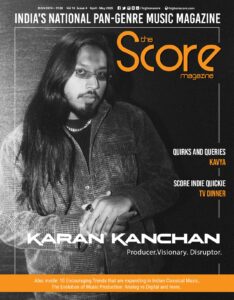The annals of Indian hip-hop movement aren’t very long-winded yet, but in an extremely short period the scene, that began with a few hits from the streets of Dharavi, spread nationwide like fire in the jungle. Even in its premature stage desi hip-hop coruscated flashes of mature music that gave the listeners a prognosis of what lied ahead. With the release of Prabhdeep’s chart-topping album Class Sikh, Hard Kaur’s enriching The Rising Mix Vol 1. and a deluge of hit singles throughout the last year, the stage was set for other artists to rise up and take the scene to the next level. Delhi based rap duo Full Power -Yungsta and Frappe Ash- did exactly that with their debut album Showtime.
Even though Yungsta and Frappe Ash are no strangers to the desi hip-hop movement their music was largely buried under the weight of big names like Divine and Prabhdeep until now. Showtime surely isn’t the introduction of the lyrical firepower and musical sophistication of the movement’s earliest rap duo but it is certainly their most grandiose project yet. It is both a declaration of their talent and a testament of their determination to stay true to underground hip-hop.
The 8-track album is laced with hypnotic rhymes wrapped with trap beats that are ideal for a 38-minute sing along session. Most hooks on the album are succinct, melodic and repetitive. They succeed in catching your attention as well as keeping it well rapt through the songs. The bars are tight and the flow is fluid in delivering constant headnodders one after the other. Yet, the most virtuosic contour of the record is its schematic approach. Showtime essentially sounds like an old-school rap album glistening in the new age production shine. This is because the beats on all tracks of the album are more trap than hip-hop, but the writing is typically old school that operates mostly within the bars. The format of most of the songs is almost similar – an eight or 16 bar chorus, followed by a 32-bar verse, the chorus, another verse and the outro. The only exception to this phenomenon is the track Na-Na where both the rappers manipulate their flow to change the tempo of the song and the transition from the chorus to the verse to the bridge is so seamless that it almost eludes your ear at the first listen. The song features producer Stunnah Beats who further accentuates the trappy vibe of the album with a strong baseline and progressive drumline on the catchy single.
From the very first track of the album- Good Morning- the rapping duo ushers the listener into the groovy vibe that remains constant throughout the album. On the following tracks – Kharji, Never, Quiet, and Top Of The Line- this vibe is imbued with self-aggrandising verses that reflect on the duo’s raw talent and steadfast artistry. With the aid of sharp metaphors like ‘‘Am I in a jungle or taking a hike | me and my demons we both look alike’’ and witty subliminals like “tik nap aa rahe ye, likh na paa rahe ye | bik gayi gormint, phir bhi bik na paa rahe ye” they successfully capture the imagination of the listener and force him to segregate them from other inferior-skilled rappers. The album also features Seedhe Maut and D’evil on the tracks Ohh No and What They Want respectively. Both artists add versatility to the album by delivering tight punches on their respective verses. While D’evil imbues the signature sound of Bombay gully rap on What They Want, Seedhe Maut lays down fierce, grimy rhymes on what might probably be the best verse on the album’s concluding track.
Showtime may not be a conceptually brave album but it is still a rhythmically balanced and streamlined enough to deliver what it promises- an uber rich sound of urban hip hop music. Yet, it has its shortcomings too. On the outro of Quiet (interlude), Frappe Ash mulls over the idea of striving to depict stories through his music like J.Cole and not simply add words together like Designer. In that regard, the album should be less gratifying to Frappe himself as it fails to deliver the strong content and concept driven music that Frappe desires to produce. The rhymes on the album have brief flashes of self-reflection, if not introspection, but largely remain braggadocious and fail to push the realm of the listener’s imagination far beyond the self and the self’s stature in this hip-hop zeitgeist. Had J.Cole heard Showtime he might would have liked it but not necessarily appreciated it.
Showtime may not be the best Indian hip-hop album yet, but it is a fine example of what desi hip hop sounds like. It is the sound of a new culture that likes to stretch the boundaries a little farther each time by doing something new. Still, it is ironic how the essence of its sound – trap music- is being classified as underground in India while taking over mainstream hip-hop everywhere else in the world.








